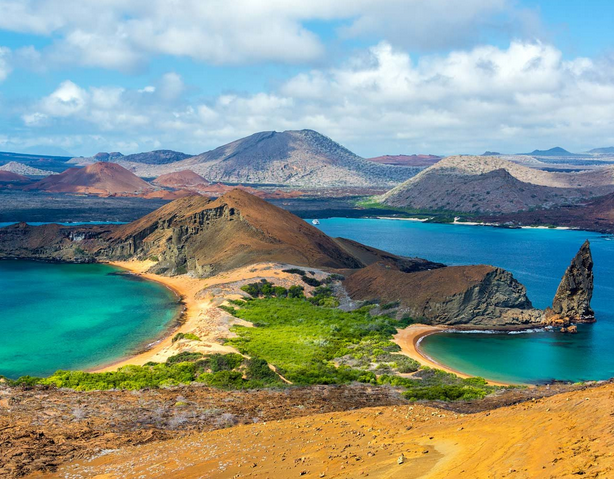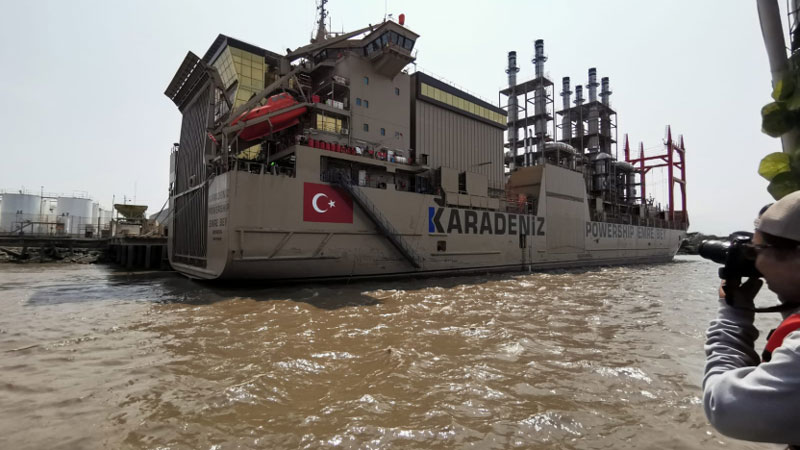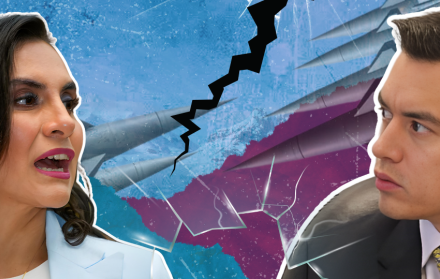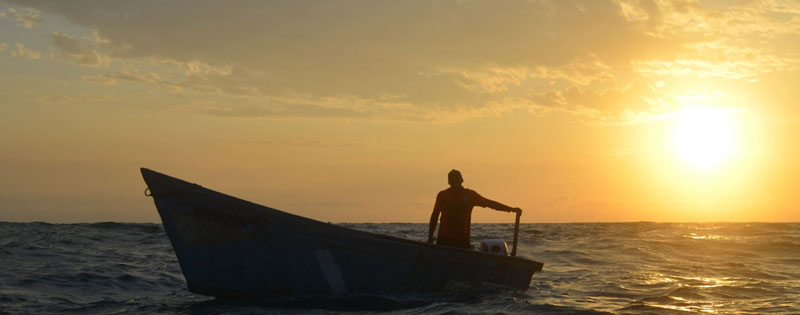International experts meet to considers ways to ‘decarbonize’ the Galapagos Islands
Dozens of scientists and academics began meeting Monday on Ecuador’s Galapagos Islands to chart a path to a “zero carbon” energy transition on that Pacific archipelago.
During the two-day “Summit for the Sustainable and Inclusive Decarbonization of the Galapagos Islands,” those experts will present the results of investigations conducted as part of the “Galapagos Living Lab for Energy Innovation” initiative and come up with a road map that is to be presented to the Ecuadorian authorities.

The Galapagos archipelago, which consists of 13 major islands, six smaller islands and scores of islets and rocks, was made famous by 19th-century British naturalist Charles Darwin, whose observations of life on the islands inspired him to develop his theory about evolution.
That living-lab action plan was launched at the 2021 United Nations Climate Change Conference in Glasgow by Universidad San Francisco de Quito (USFQ), the University of Edinburgh and the British Ecuadorian Chamber of Commerce.
The speakers will include experts from the Geneva-based Intergovernmental Panel on Climate Change and the Oak Ridge National Laboratory, a federally funded research and development center in the US state of Tennessee.
The Galapagos Islands, a UNESCO natural heritage site that is home to around 33,000 inhabitants and the world’s second-largest marine reserve, received more than 267,000 tourists last year.
The Galapagos’ energy matrix is currently heavily dependent on fossil fuels, with diesel and gasoline imported from the Ecuadorian mainland used as fuel for tourist vessels and wind and solar making up a very small share of the total.
For that reason, renewable energy systems will be a main focal point of the gathering, including the viability of using green hydrogen and electric engines to power boats.
Ecuadorian Environment, Water and Ecological Transition Minister Jose Antonio Davalos, Ecuadorian Deputy Energy Minister Marcelo Jaramillo, USFQ President Diego Quiroga and University of Edinburgh Principal and Vice Chancellor Sir Peter Mathieson took part in the inauguration of the gathering.
Davalos warned that climate change has gone from being an imminent threat to a reality that can only be combated collectively by “the public and private (spheres), alongside academia and (the scientific community).”
Ecuador’s government is already working on a National Transition Plan toward Decarbonization, according to the minister, who said the Galapagos Islands are a national treasure and the “perfect stage” for advancing toward that goal with the help of scientists and academics.
Jaramillo, for his part, recalled that Ecuador has set a goal to reach carbon neutrality (a state of net-zero carbon dioxide emissions) by 2050 and said the private and public sectors must work together to achieve that objective.
Mathieson, meanwhile, expressed optimism that the gathering would make a contribution to Ecuador’s and the international community’s energy transition and reiterated the need to protect precious assets like the Galapagos Islands.
Alfredo Balarezo of the Energy and Materials Institute at the USFQ, which organized this symposium in tandem with the Galapagos Science Center and the “Galapagos Living Lab for Energy Innovation” initiative, said the archipelago should be internationally emblematic in the energy transition front just as it has been in the area of conservation.
The archipelago – which consists of 13 major islands, six smaller islands and scores of islets and rocks – was made famous by 19th-century British naturalist Charles Darwin, whose observations of life on the islands inspired him to develop his theory about evolution, natural selection and the origin of species.
Located in the Pacific Ocean about 1,000 kilometers (620 miles) off the coast of mainland Ecuador, the islands are home to more than 7,000 endemic and native species, many of them found nowhere else on the planet.
___________________
Credit: La Prensa Latina

















